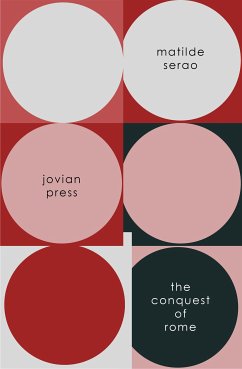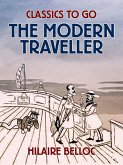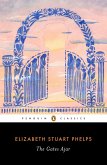The train stopped. 'Capua! Capua!' three or four voices cried monotonously into the night. A clanking of swords dragged on the ground was heard, and some lively muttering that passed between a Lombard and a Piedmontese. It came from a group of subaltern officers, who were ending their evening's amusement in coming to see the night train from Naples to Rome pass through. While the conductor chatted respectfully with the station-master, who gave him a commission for Caianello, and while the postman handed up a mail-sack full of letters to the clerk in the postal van, the officers, talking to each other and making their spurs ring (from habit), looked to see if anyone got in or out of the train, peeping through the doors which were open for the sight of a fair feminine face or that of a friend. But many of the doors were closed. Blue blinds were stretched over the panes, through which glimmered a faint lamplight, as if coming from a place where lay travellers overpowered by sleep. Bodies curled up in a dark tangle of coats, shawls, and sundry coverings, were dimly discernible.
'They are all asleep,' said one of the officers; 'let us go to bed.'
'This is probably a newly-married couple,' suggested another, reading over a door the word 'Reserved.' And since the blind was not drawn, the officer, aflame with youthful curiosity, jumped on the step and flattened his face against the window. But he came down at once, disappointed and shrugging his shoulders.
'It is a man, alone,' he said—'a deputy, no doubt; he is asleep, too.'
But the solitary man was not asleep. He was stretched out at full length on the seat, an arm under his neck, and one hand in his hair; the other hand was lost in the bosom of his coat. His eyes were closed, but his face bore not the soft expression of repose, not the deep peace of human lineaments in sleep. Instead, the effort of thought was to be read in those contracted features...
'They are all asleep,' said one of the officers; 'let us go to bed.'
'This is probably a newly-married couple,' suggested another, reading over a door the word 'Reserved.' And since the blind was not drawn, the officer, aflame with youthful curiosity, jumped on the step and flattened his face against the window. But he came down at once, disappointed and shrugging his shoulders.
'It is a man, alone,' he said—'a deputy, no doubt; he is asleep, too.'
But the solitary man was not asleep. He was stretched out at full length on the seat, an arm under his neck, and one hand in his hair; the other hand was lost in the bosom of his coat. His eyes were closed, but his face bore not the soft expression of repose, not the deep peace of human lineaments in sleep. Instead, the effort of thought was to be read in those contracted features...









